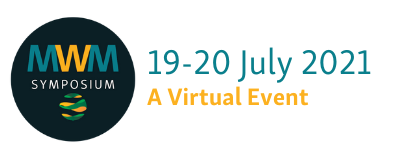
Intensive longitudinal measurement:
Methodologies for collecting, analyzing and interpreting patient-generated data from daily diaries, wearables and sensors
The virtual Measuring What Matters Symposium was a huge success! We had record attendance with 168 registrants as well as engaging participation in the live Q&As.
If you were not able to join the live symposium in July, recordings are now available for purchase. The session presentations include:
- Session I: Intensive longitudinal measurement and you: How do you measure what matters?
- Session II: Walking a mile in the patient’s shoes
- Session III: Having your cake and eating it, too: Mixing modalities to enhance interpretation of data
- Session IV: Why did the researcher throw away their data? – How to handle intensive longitudinal data as a research outcome
- Session V: What makes a step a step? A step by any other algorithm…
- Session VI: When good science meets good standards – Regulatory considerations around intensive longitudinal data
- Session VII: A World of Pure Imagination: The evolving landscape and undefined future
The cost to purchase the event recordings is the same as the individual registration rate*. If you registered for the event, you can access the recordings at no charge.
*Registration Rates
- Members: $250
- Non-members: $350
- Student/Special/Retired Members: $150
About the Symposium
As we collect data more frequently in both clinical and real-world studies, patients are often assessed using intensive longitudinal measurement techniques, such as daily diaries, wearable devices, and/or sensor technology. This allows the recording of data at regular intervals between site visits, the capture of acute events as they occur for clinical monitoring, and/or continuous monitoring in order to answer research questions that were previously unanswerable through traditional data collection.
Despite our ability to collect more data, our knowledge about evaluating new data collection techniques and using these rich data sources effectively is limited.
This symposium covers
- patient-centered approaches to endpoint selection/development
- the subsequent identification of appropriate methods and technology for assessing these endpoints
- the different ways we currently summarize this data and how this leads to a loss of information
- ways to maximise our data using improved summary methods and more complex modelling techniques
Attendees will leave this symposium with new insights and better understanding on how to better use, analyze, and interpret intensive longitudinal data generated from daily diary and wearable devices in a more effective and complementary manner.

The International Society for Quality of Life Research (ISOQOL) is a global community of researchers, clinicians, health care professionals, industry professionals, consultants, and patient research partners advancing health related quality of life research (HRQL).
Together, we are creating a future in which patient perspective is integral to health research, care and policy.

